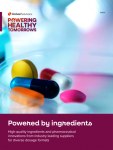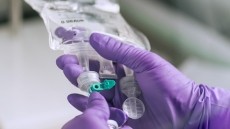Catalent contract secure as Roche buys InterMune for $8.3bn

The acquisition of the Californian biotech firm will broaden Roche’s global respiratory portfolio. Lead product Esbriet is approved in the EU and Canada for the treatment of idiopathic pulmonary fibrosis (IPF), and received breakthrough therapy designation from the US Food and Drug Administration (FDA) last month.
Roche beat bids from other pharma firms - including GlaxoSmithKline, Actellion and Sanofi according to a Bloomberg report – and has said it is planning a full and smooth integration of both the Californian biotech’s employees and operations in order to prepare for the US launch of Esbriet later this year.
Roche spokesman Štěpán Kráčala told Outsourcing-Pharma.com “InterMune is outsourcing its manufacturing and this arrangement is expected to continue at this stage.”
This means good news for contract manufacturing organisation (CMO) Catalent, which – according to InterMune’s annual report - has an ongoing commercial agreement to process and encapsulate the pirfenidone active pharmaceutical ingredient (API) for an initial term of five years from the date of first commercial launch (2011 in Germany).
InterMune also has a ten year supply agreement, signed in 2009, with the fine chemical firms Signa and ACIC for the API itself.
Since the initial launch, annual sales of the drug have risen from $2.8m to $70m in 2013 following the product launch in Belgium, Canada, Finland, Ireland, Italy and the UK. There is currently no FDA approved therapy available for the treatment of IPF.
Esbriet
Esbriet is an orally active, small molecule drug that inhibits the synthesis of TGF-beta - a chemical mediator that controls many cell functions including proliferation and differentiation - and plays a key role in fibrosis, Kráčala told us.
“Pirfenidone also inhibits the synthesis of TNF-alpha, a cytokine that is known to have an active role in inflammation,” he added.
As well as Esbriet, InterMune is developing a number of other candidates targeted against fibrosis. “Roche will evaluate these molecules in accordance with its governance process for internal assets,” we were told.
The deal brings Roche’s acquisition total to two for the month of August, having already paid $250m for Santaris and a re-entry into the gene silencing space. However, last week the firm looked at buying the remaining 38% of its part-owned subsidiary Chugai Pharmaceuticals but has since decided not to bid in a deal worth potentially $10bn.


















